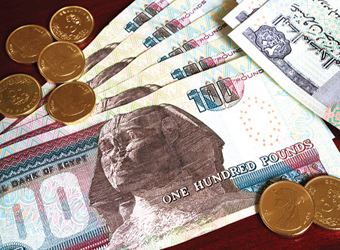The dissolution of the Egyptian parliament elected after last year’s overthrow of veteran president Hosni Mubarak has alarmed investors who fear the country will now hurtle towards a balance of payments crisis and currency collapse.
Growth in North Africa’s biggest economy has flatlined in the 16 months since the toppling of Mubarak’s 30-year regime. Currency reserves have halved, undermining the value of the Egyptian pound and troubling external creditors who are owed almost $6 billion over the next 12 months, according to data from Bank of America/Merrill Lynch.
Potential investors have been looking to this weekend’s presidential election to resolve the policy limbo and pave the way for aid and business finance.
Instead, a court ruling this week dissolved parliament and ruled to keep Mubarak’s last premier in the presidential race.
Political tensions have been delaying the unlocking of aid from the International Monetary Fund and keeping away foreign investors and tourists. Meanwhile Egypt’s balance of payments gap ballooned to $11 billion in the first nine months of the 2011-2012 financial year, more than double year-ago levels.
“It’s difficult to see political consensus forming and in the absence of that it’s difficult to see how you would get much support to plug external financial needs,” said Jean-Michel Saliba, Middle East economist at Bank of America/Merrill Lynch.
“At the moment there is no parliament, no constitution and no president.”
The news of the court ruling sent Egypt’s debt insurance costs soaring to three-year highs, meaning investors pay more now to insure exposure to Egypt via credit default swaps than during the uprisings that ousted Mubarak and other North African leaders.
Later on Friday global credit-rating agency Fitch downgraded Egypt’s sovereign credit rating deeper into junk status, cutting by one notch to B-plus and flagging a risk of more downgrades in the next 12 to 18 months.
“Whatever the ultimate outcome of these (Egyptian) events, the political and policy-making process has been complicated, delaying the likely implementation of the comprehensive macroeconomic and structural reforms needed to kick-start recovery and ease financing strains,” said Richard Fox, head sovereign analyst for Middle East and Africa at Fitch.
But most foreigners have already fled the market. Saliba reckons non-residents’ holdings of local treasury bills have fallen to $300 million from over $10 billion in December 2010 and puts foreigners’ total equity exposure at just $3 billion
While Egyptian stocks, bizarrely, have been star performers this year, much of the 20-percent gain is thought to have been driven by locals.
Oliver Bell, a portfolio manager at T.Rowe Price, has owned no Egyptian equities since the start of 2011.
“People were hoping the presidential election, regardless of who wins, would bring in a leader, someone the IMF could talk to,” he said. “Now all this is again delaying the point when real foreign investment comes back to the country.”
Bell and other investors see little incentive to invest in Egypt. Politics aside, investors have been alarmed by the slowing economy; in contrast to average annual growth of 6 percent in the pre-Lehman years, gross domestic product (GDP) this year is seen growing barely 2 percent.
Foreign direct investment has plunged to a tenth of year ago levels, data recently showed
For stock and bond investors, much of the fear is linked to the currency. Forward markets are pricing up to a 30 percent devaluation for the Egyptian pound in the next year as the central bank reaches the bottom of its reserves war chest.
Reserves, excluding gold, now stand at just over $12 billion or a paltry three months’ import cover. While Gulf governments have offered some aid, including a Saudi $1 billion deposit at the central bank, investors say this can only be a stopgap.
“There will be some form of devaluation, it’s getting harder and harder to defend the currency,” Bell said. “If the stock market falls and the currency depreciates, you’ll get hit hard.”
The crunch may not be too far off. July will be a crucial month as Egypt must repay $1 billion in maturing Eurobonds and also $700 million in Paris Club debt.
A default is not expected, says Kieran Curtis, a portfolio manager at Aviva Investors who holds the maturing dollar bonds. But he has hedged his exposure to the Egyptian pound because under the bond terms, the payout is based on the exchange rate.
“As the value of the payment is linked to the pound, there is a strong incentive to devalue,” Curtis said, adding he has no other Egyptian exposure.
“The macro numbers are not bondholder friendly so combined with the political situation that is not a position we would like to add to.”
